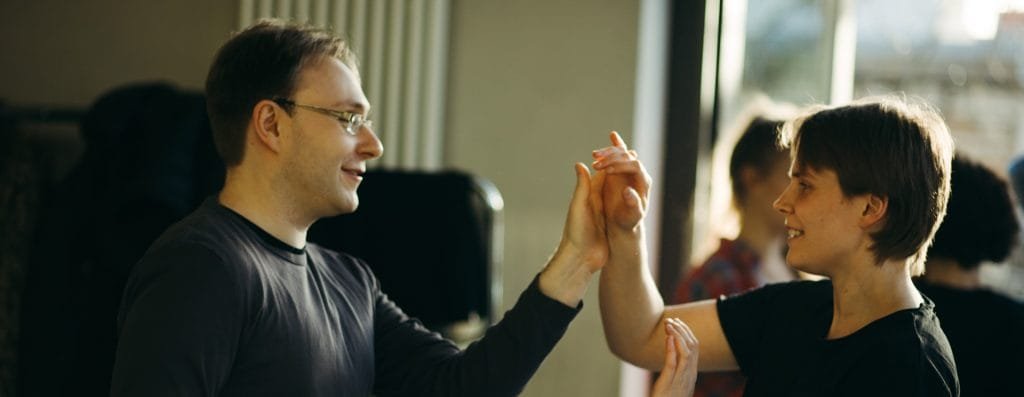
They Never Really Listen to Me
How many times have you said or heard people say: “They never really listen to me, so why should I even bother explaining myself to them”, as a response to questions or life- situations? How many of us feel that there are only a small handful of people out there who truly listen to us?
This feeling is beyond gender, age or origin. For some reason so many of us suffer from the same experience: he/she/they just don’t listen to us, and even the people closest to us don’t truly understand.
Each of us behaves in our own unique way
One of the principles that leads any Pantarei process is the understanding that each of us behaves and thinks in our own unique way. When a practitioner pays attention to their client in an empathic way, they realize what the specific strengths of that person are. The uniqueness of our character is that which can ultimately connect us and create the best grounds for communication.
From this point of view, what is unique about us can support us in creating stronger, more meaningful and honest relationships. When we are able to express ourselves in our own way and also listen to how others do the same, we create a healthier dynamic, and more creative options of how to spend time together, open up. However noticing how others listen is quite of a challenge for many of us.

“They never really listen to me”, she repeated a few times during our initial conversation in our first Pantarei session. Her insistence, and the way she said it, made me understand that there was no chance for me to contradict her. My client had been married to her husband for 5 years at the time of our first session, and her frustration had only grown stronger over the years. She had started to envy her friends, who seemed to have better relationships with their significant others. She said that she did not wish to separate, but that she didn’t know what she could do. She felt that she was constantly investing a lot of energy into the relationship, while he didn’t seem to play his part at all. She said that this affected her sleep, her levels of energy and the motivation she had for other areas of her life.
As a Pantarei practitioner, I know that the most important element to recognize in any session is the uniqueness of each of the people I work with. Pantarei claims that if each of us knew how to bring our many unique abilities and qualities to the surface, while allowing others to do the same, we would be able to communicate and connect much more deeply and with much more ease.
To recognize the unique way in which they listen
Our conversation continued. I asked her many questions about her husband, the same partner that she claimed didn’t listen. Who was he? What did he do? What was he proud of? What were the things he was interested in? What were the things he loved doing? The conversation started to become more interesting for both of us. We talked about his work, his family, and about his passion to carve things out of wood. “He can stay in his studio for hours,” she told me, “to polish and shape the wood until it transformed into one of the many beautiful statues in our home”.

“It seems that at least he knows how to listen to the wood?” I said. We laughed, and the conversation continued. Quite naturally it became clearer to us that he is a good listener, only that he listens in a very different way to her. He could easily spend a few hours every day in complete silence. Just the opposite to her. She wanted him to ask her questions and when he didn’t, she experienced it as if she was being ignored.
In that part in the session, in which my hands joined our conversation, just like in any Pantarei session, she moved to lie down on the treatment table. I asked her about his way of listening. I asked her what he listens to and how he expresses himself. She talked about his silence: “Contagious silence,” she called it, “like the desert. An endless silence, that sometimes gives me a sensation of sadness”. I could feel her muscles relaxed underneath my hands, her diaphragm started moving in a smoother way with her breathing, and a space opened up in her chest to allow for her hurt. I could feel that I touched her love for him, and for his silence.
To respect others
Our process continued for a few months. Over this time, she continued to do most of the talking in the relationship. He continued to be more silent than her. But she was able to tell him that she wanted his listening to be translated into words, just as he translated it into the wooden figures he created. He listened, and he started asking more questions. He was still less vocal than what she would have wanted, but she could appreciate his effort, and as a result, became less angry at him. This naturally allowed him a sensation of safety, and with it, more space in which to communicate in the way she needed it. She began to respect his way of listening – his quietness, and sometimes, she told me with a smile, she brought her books to his studio and read in the silence that he created there. She became interested in his way of listening, in how he saw his wood, his art and life.

If you find yourself saying a similar sentence in certain moments in your life: “They never really listen to me”, take a moment to think about the person in front of you, before judging them too strongly.
Can you describe what they listen to? And how they listen? You are probably right that they don’t listen to you in the way you wish them to. But, it is very likely that they listen. Just differently.



